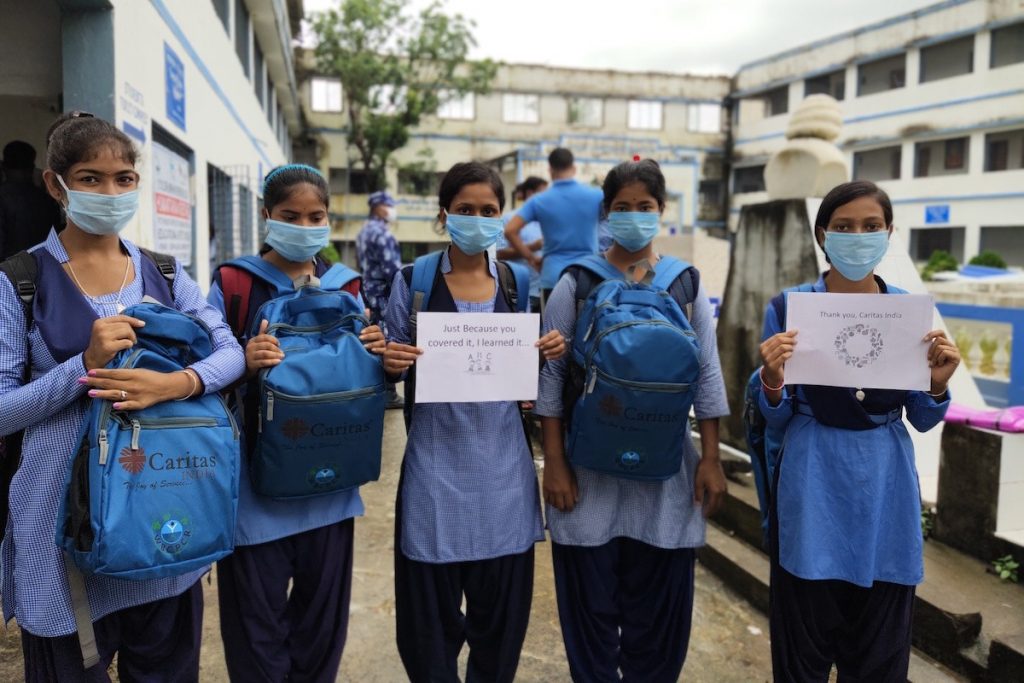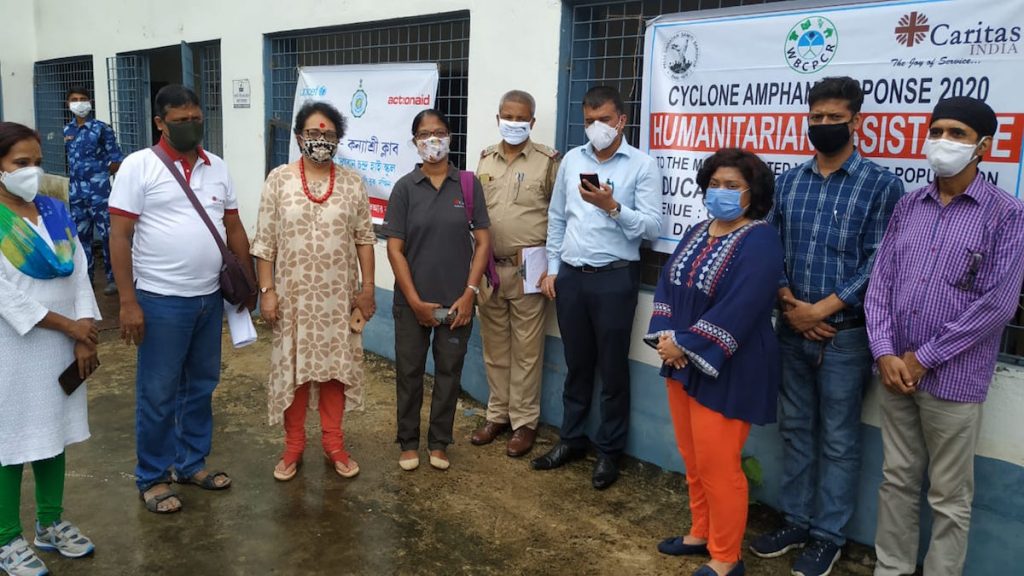
May 18 is a day which 14-year-old Tasleema Khatoon cannot forget. Dark moody clouds blanketed her poor village of Kaikhali in India’s eastern state of West Bengal; they were harbingers for the coming Super Cyclone Amphan. In advance the government declared an emergency and asked villagers to seek shelter in far off government buildings. Tasleema and her family did so and left most their belongings behind.
Two days later, the cyclone hit the state. Trees, houses and crops were destroyed. More than 98 people lost their lives. It was the strongest cyclone to hit the region in over a decade.
Tasleema and her family spent days in a jam-packed corridor of a building that local authorities had turned into a shelter. Her father, Atiq-ur Rahman, was troubled over the fate of their house, their livestock and crops while Tasleema was more concerned over the loss of her most “valuable treasure” — her books.
Several weeks after Super Cyclone Amphan struck they returned to their home and found their village shattered. The paddy fields were devastated, carcasses of dead animals lay on roadsides while buildings that were once homes looked like cardboard boxes crushed by the hands of a giant.
Tasleema, who wanted to one day become a mathematician, not only lost her books but her school uniform and study notes.
“For the first two days, I didn’t eat anything. The awful images of my books being washed away in the cyclone were haunting me nonstop. I lost all hope that I could study again,” the teenager told LiCAS.news.
Before the cyclone stuck, Rahman was about to harvest a crop from his three acres of cultivable land which was now destroyed.
“Besides Tasleema, her mother and I too were crying,” Rahman told LiCAS.news. “We lost the belongings of my home, two buffalos and the year’s harvest. I straight away told my daughter that she would have no option now but to forsake her studies and work as a maid somewhere to earn some money,” he said.
Tasleema instantly abandoned her dreams of further studies. Her friends living in the village also shared the same predicament. “There was absolutely nothing left to hope about. Our parents were devastated by the destruction and it was inhuman to even ask them for help,” Tasleema said.

When hope arrived
In September, Caritas India surveyed the village area to get firsthand accounts on how the cyclone impacted lives.
“We found that children in the village were no longer interested in their studies,” said Father Paul Moonjely, the executive director of Caritas. “They had their books washed away and their families too were no longer concerned about their education,” he said.
Out of concern for their future welfare, the church agency formulated a proposal to help the village’s children be able to study again. As part of this Caritas partnered with the local government and the West Bengal Commission for Protection of Child Rights. Since then more than 200 children from the area around the village have been provided with school kits which contain textbooks, bags, notebooks and pencils.
“This is aimed to reignite the hope in them that they should study again,” said Father Moonjely about the effort which is ongoing.
Tasleema was among the 200 children who received the school kits. “The cyclone changed everything but now God has sent us help. He is all merciful and benevolent,” she said.
Another student who received Caritas help, Jahanara Bibi, said that the kits offered hope for those village children asked to stop their studies.
“Now when schools have opened in our area after COVID-19 lockdown, we can easily go there and study. The school kits are inspiring us to study come what may,” said Jahanara who is a few years older than Tasleema.
The parents of the children in the village were counselled by Caritas teams on how they should not discourage their children from studying or going to school. The parents were told why a proper education can help them escape a life of poverty.
“Thank God they understood and were not averse to our suggestions. Their only worry was that they have no means to fund the education of their children,” said Surya Prakash, a local volunteer who worked on the Caritas partnered project.
“Once we told them that books and other material are being provided to the students free of cost, they were quite happy,” Prakash said.
Source: Licas Philippines
0 Comments